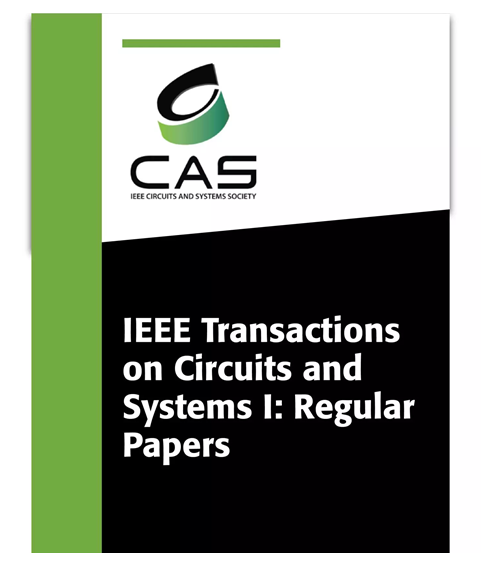Spiketrum:基于fpga的神经形态耳蜗实现
IF 5.2
1区 工程技术
Q1 ENGINEERING, ELECTRICAL & ELECTRONIC
IEEE Transactions on Circuits and Systems I: Regular Papers
Pub Date : 2025-01-27
DOI:10.1109/TCSI.2025.3526585
引用次数: 0
摘要
本文提出了一种基于fpga的神经形态耳蜗,利用通用的spike编码算法Spiketrum。本研究的重点是开发和表征这种耳蜗模型,该模型擅长将音频振动转化为生物学上真实的听觉尖峰序列。这些尖峰序列的设计是为了承受神经波动和尖峰损失,同时准确地封装音频的空间和精确的时间特征,以及传入振动的强度。值得注意的特点包括能够以最小的信息损失和重建原始信号的能力生成实时尖峰序列。这种微调功能允许用户优化尖峰率,实现输出质量和功耗之间的最佳平衡。此外,将反馈系统集成到Spiketrum中,可以选择性地放大特定功能,同时衰减其他功能,从而促进基于应用需求的自适应功耗。硬件实现既支持基于峰值的处理器,也支持非基于峰值的处理器,使其适用于各种计算系统。耳蜗编码多种感官信息的能力,超越了声波形式,将其定位为当前和未来基于spike的智能计算系统的有前途的感官输入,提供紧凑和实时的spike序列生成。本文章由计算机程序翻译,如有差异,请以英文原文为准。
Spiketrum: An FPGA-Based Implementation of a Neuromorphic Cochlea
This paper presents a novel FPGA-based neuromorphic cochlea, leveraging the general-purpose spike-coding algorithm, Spiketrum. The focus of this study is on the development and characterization of this cochlea model, which excels in transforming audio vibrations into biologically realistic auditory spike trains. These spike trains are designed to withstand neural fluctuations and spike losses while accurately encapsulating the spatial and precise temporal characteristics of audio, along with the intensity of incoming vibrations. Noteworthy features include the ability to generate real-time spike trains with minimal information loss and the capacity to reconstruct original signals. This fine-tuning capability allows users to optimize spike rates, achieving an optimal balance between output quality and power consumption. Furthermore, the integration of a feedback system into Spiketrum enables selective amplification of specific features while attenuating others, facilitating adaptive power consumption based on application requirements. The hardware implementation supports both spike-based and non-spike-based processors, making it versatile for various computing systems. The cochlea’s ability to encode diverse sensory information, extending beyond sound waveforms, positions it as a promising sensory input for current and future spike-based intelligent computing systems, offering compact and real-time spike train generation.
求助全文
通过发布文献求助,成功后即可免费获取论文全文。
去求助
来源期刊
CiteScore
9.80
自引率
11.80%
发文量
441
审稿时长
2 months
期刊介绍:
TCAS I publishes regular papers in the field specified by the theory, analysis, design, and practical implementations of circuits, and the application of circuit techniques to systems and to signal processing. Included is the whole spectrum from basic scientific theory to industrial applications. The field of interest covered includes: - Circuits: Analog, Digital and Mixed Signal Circuits and Systems - Nonlinear Circuits and Systems, Integrated Sensors, MEMS and Systems on Chip, Nanoscale Circuits and Systems, Optoelectronic - Circuits and Systems, Power Electronics and Systems - Software for Analog-and-Logic Circuits and Systems - Control aspects of Circuits and Systems.

 求助内容:
求助内容: 应助结果提醒方式:
应助结果提醒方式:


